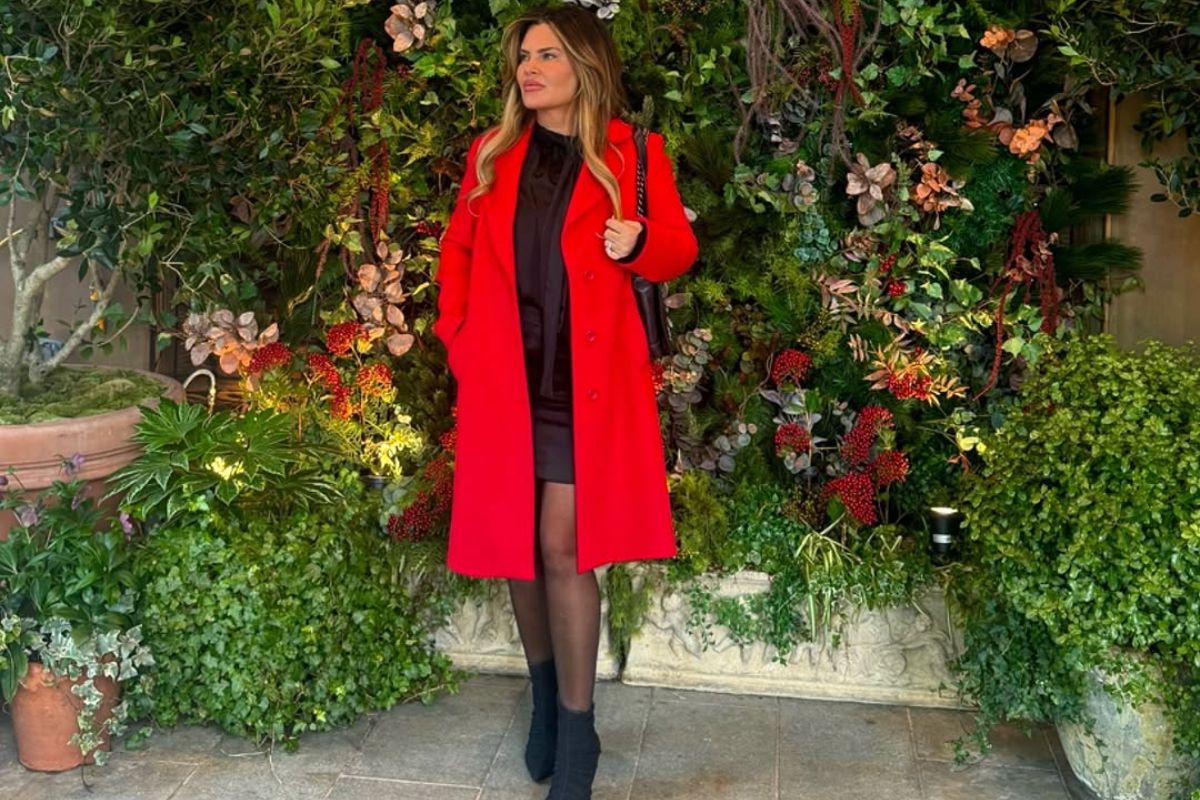Nicole Sealey: The Poet Who Made a Government Report Famous

I first heard about Nicole Sealey when my mate Dan, who teaches English at university, wouldn’t shut up about some poetry book. “She took the Ferguson police report,” he kept saying, “and turned it into actual art.”
Right. Ferguson. Michael Brown. All that mess from 2014. I remembered the protests, the news coverage, and the anger. But poetry? From a government report?
Dan was right, though. Nicole Sealey really did something special with “The Ferguson Report: An Erasure.” Won her the 2024 OCM Bocas Prize too. Not bad for something most people would use as a doorstop.
Table of Contents
ToggleGrowing Up Between Islands And the Mainland
Nicole Sealey was born in St. Thomas; that’s the U.S. Virgin Islands, not the London borough. Her family moved to Apopka, Florida, when she was young. Small town near Orlando. Theme parks and strip malls, basically.
But she kept that Caribbean connection. You can tell in her poems. There’s this rhythm, this way of looking at America from slightly outside. Like she’s got one foot on an island and one on the mainland. Never quite settled in either place.
My cousin grew up similarly: Jamaican parents, raised in Birmingham. Says it makes you see things differently. Always translating between worlds. Nicole Sealey does that in her writing.
Nicole Sealey First Steps In Poetry
Started small, like most poets do. In 2015, she won something called the Drinking Gourd Chapbook Poetry Prize for “The Animal After Whom Other Animals Are Named.” Chapbooks are thin poetry collections, maybe 20 pages. Not much money in it, but it gets your name out there.
The poetry world is tiny. Everyone knows everyone. Win one prize, get invited to read somewhere else, meet another poet, and get recommended for a magazine. That’s how careers are built.
Her first proper book came in 2017. “Ordinary Beast” through Ecco Press. Big publisher, proper distribution. Made it to the shortlists for the PEN Open Book Award and the Hurston/Wright Legacy Award the next year.
Still not exactly bestseller territory. Poetry doesn’t work like novels. Sell 3,000 copies and you’re doing well. But critics noticed. Other poets noticed. That matters more than sales numbers, honestly.
The Ferguson Breakthrough
Everyone talks about this book now. Published 2023. It took Nicole Sealey ages to write it, apparently.
She started with the full Department of Justice report about Ferguson police practices. 105 pages of legal language, statistics, and bureaucratic waffle. The sort of thing civil servants write to cover their backs.
But buried in all that official speak was the real story. Black residents getting hassled. Traffic stops for driving whilst Black. Fines that spiralled into court dates, more fines, and sometimes jail time. All very neat and legal and completely mental.
Nicole Sealey went through every page with a pen. Crossed out words, left others. What remained told the same story, but suddenly it hit differently. Like watching someone strip paint off an old door; suddenly you see the grain underneath.
Won her major recognition too. That Forward Prize for Best Single Poem came first, in 2021, just for an excerpt. Then the full book won the OCM Bocas Prize. NAACP Image Award nomination as well.
Running The Show At Cave Canem
2017 to 2019, Nicole Sealey ran Cave Canem Foundation. Massive deal in Black poetry circles. Been around since ’96, supporting poets who might not get chances elsewhere.
Not just handing out grants, though that’s part of it. More like being headteacher at a school where everyone’s already graduated. Deciding which writers get retreats, which manuscripts get published, and who gets introduced to editors.
Poetry publishing is still pretty white. Cave Canem helps level things a bit. Nicole Sealey’s time there meant she influenced which voices got heard. Real responsibility, that.
Left to focus on writing and teaching. Now she’s at NYU, running their M.F.A. program in Paris. Students get to work with someone who’s actually changed contemporary poetry. Lucky sods.
Fellowship Circuit
Artists need time and money to create. Fellowships provide both. Nicole Sealey’s collected quite a few.
Rome Prize from the American Academy in Rome; that’s months in Italy, all expenses paid, just to write. Hodder Fellowship at Princeton. Cullman Center Fellowship at New York Public Library for 2023-24.
These aren’t easy to get. Competition’s fierce. You’re up against writers from everywhere, all desperate for that breathing space. Getting one fellowship is impressive. Getting several suggests your work’s consistently good.
National Endowment for the Arts gave her money too. New York Foundation for the Arts as well. Stanley Kunitz Memorial Prize from American Poetry Review. Each one builds credibility, opens more doors.
Working With Other Writers
2024, she co-edited “Dear Yusef” with John Murillo. Book about Yusef Komunyakaa, who won the Pulitzer for poetry back in ’94. Proper legend in American poetry.
Editing anthologies means reading hundreds of submissions. Mostly rubbish, if we’re honest. Finding the good stuff, making it fit together, writing introductions – proper work, that. Not glamorous, but important for the community.
The book mixes essays, letters, poems. All about Komunyakaa’s influence on other writers. Academic but personal too. That balance isn’t easy to manage.
Magazine Publications
Nicole Sealey gets published in The New Yorker regularly. That’s huge. Most poets spend their whole careers trying to get in there once. She’s practically on speed dial.
The Nation, Paris Review, all the top magazines. Editors know her name now. When they need a poem about current events or identity or just something good, they call her.
That relationship took years to build. You don’t just email The New Yorker and expect them to publish your stuff. But once you’re in their circle, doors open everywhere else.
What’s Different About Her Work
Lots of poets write about race. Fair enough, as it’s their lived experience. But many do it badly. Too angry, too preachy, too obvious.
Nicole Sealey’s smarter than that. She lets readers work things out themselves. That Ferguson erasure succeeds because it doesn’t explain everything. Just presents the evidence and lets you decide.
Same with her Caribbean-American identity. It’s there in the poems but not hammering you over the head. She trusts readers to pick up the references, understand the context.
It takes confidence to write like that. Younger poets often overexplain, worried readers won’t get it. Nicole Sealey knows her craft well enough to leave space for interpretation.
Current Projects And Influence
2024, she judged the APR/Honickman First Book Prize. Means reading debut collections from poets across America. Your decision affects someone’s entire career. Get it wrong, and a brilliant writer stays unknown for years.
Students study her work now. Creative writing courses assign her poems. That’s how influence spreads in poetry: through classrooms and workshops.
Younger poets try copying her style. Natural reaction, but misses the point. Nicole Sealey succeeded by finding her own voice, not mimicking others. That’s the lesson, really.
What Comes Next
She’s 42 now. Good age for a poet. Old enough to know what you’re doing, young enough for decades more work.
No idea what her next project is. Knowing her track record, probably something unexpected. Maybe another government document. Maybe something completely different.
But she’s proved something important. Poetry can make people pay attention to things they’d rather ignore. Not through shouting or lecturing. Through craft, through beauty, through making familiar words mean something new.
That’s what proper poets do. They change how we see the world, one line at a time. Nicole Sealey does exactly that. And she makes it look easy, which is the hardest trick of all.
Published by Azura Everhart
I'm Azura Everhart, Digital Marketing Specialist, with over five years of experience helping brands grow through smart, data-backed digital strategies. Holding a Bachelor's in Business Administration and a Diploma in Digital Marketing Strategy, I specialize in building campaigns that connect, convert, and create lasting impact. I also write about the latest in business innovation and health trends, aiming to make complex ideas practical and engaging for modern audiences. View more posts







